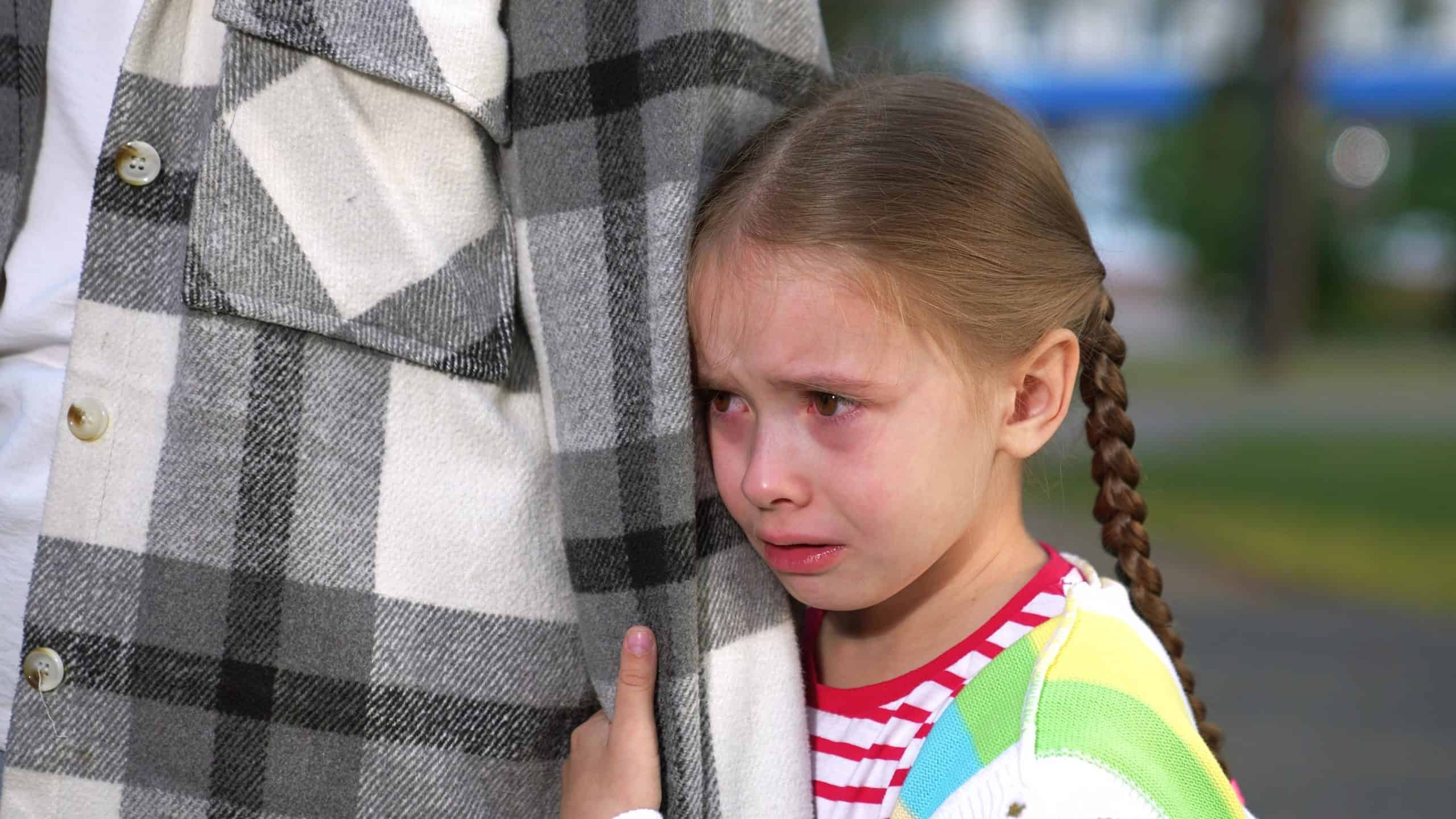
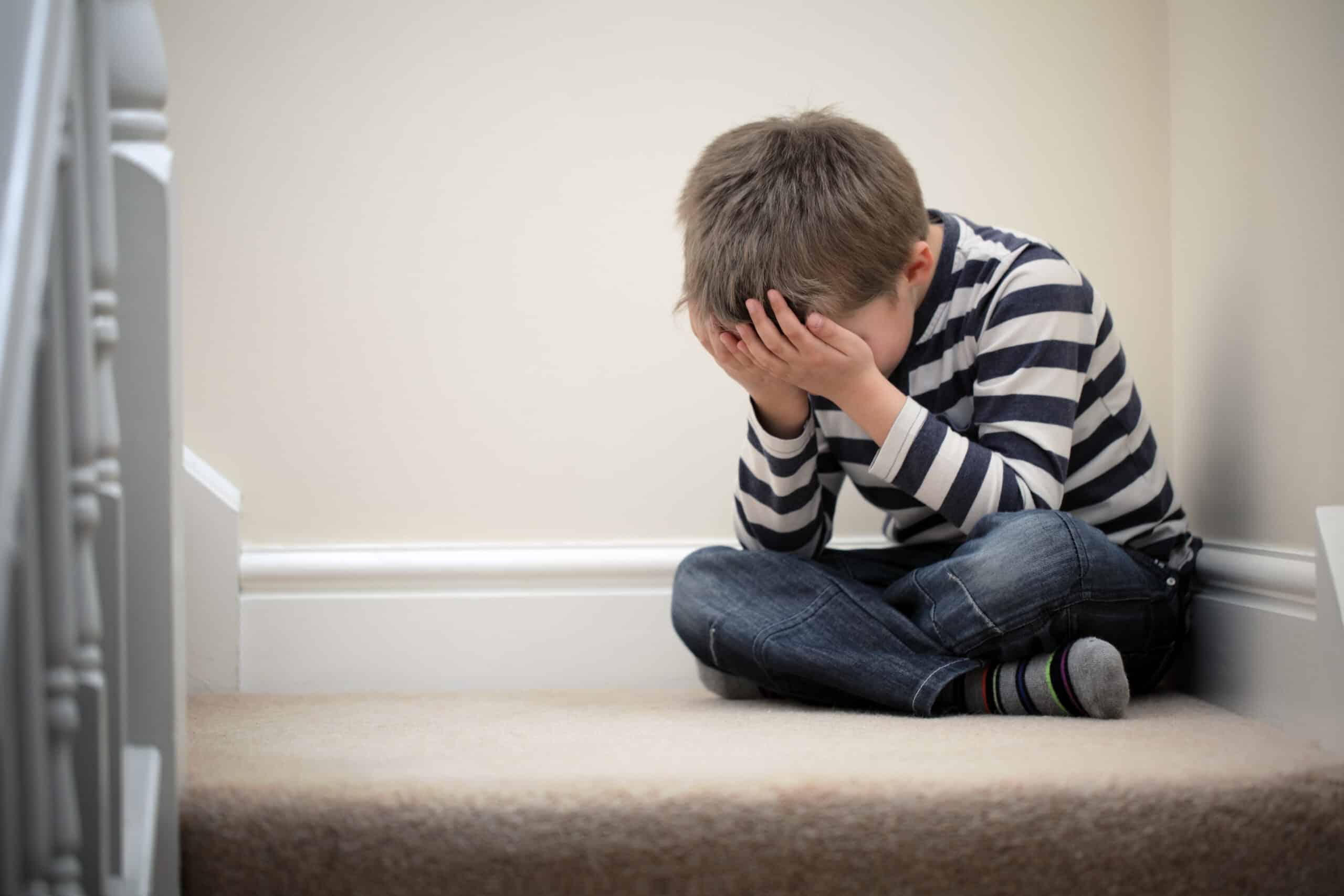
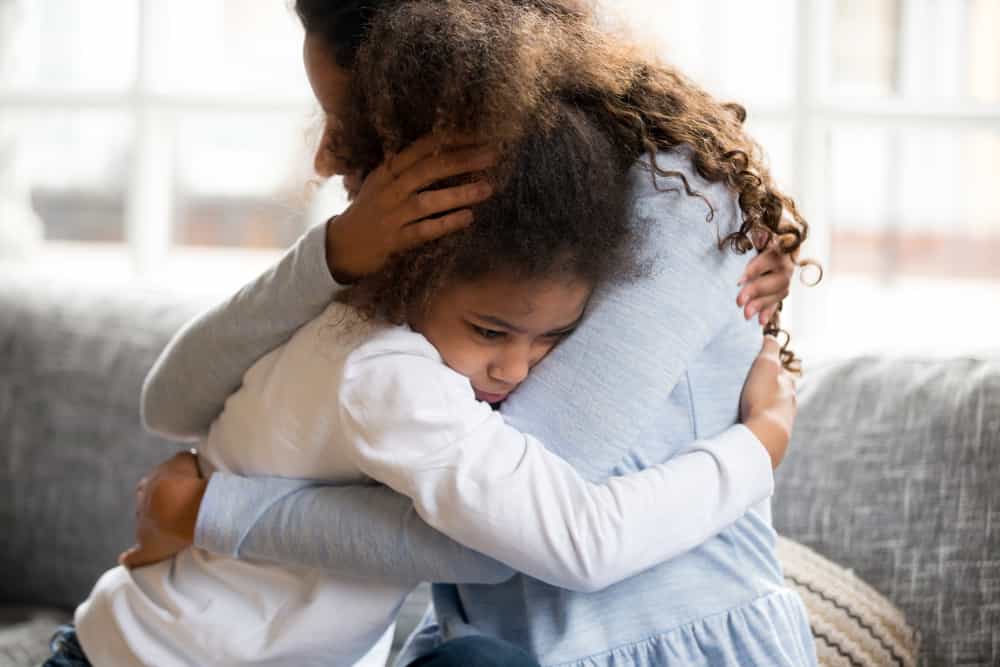
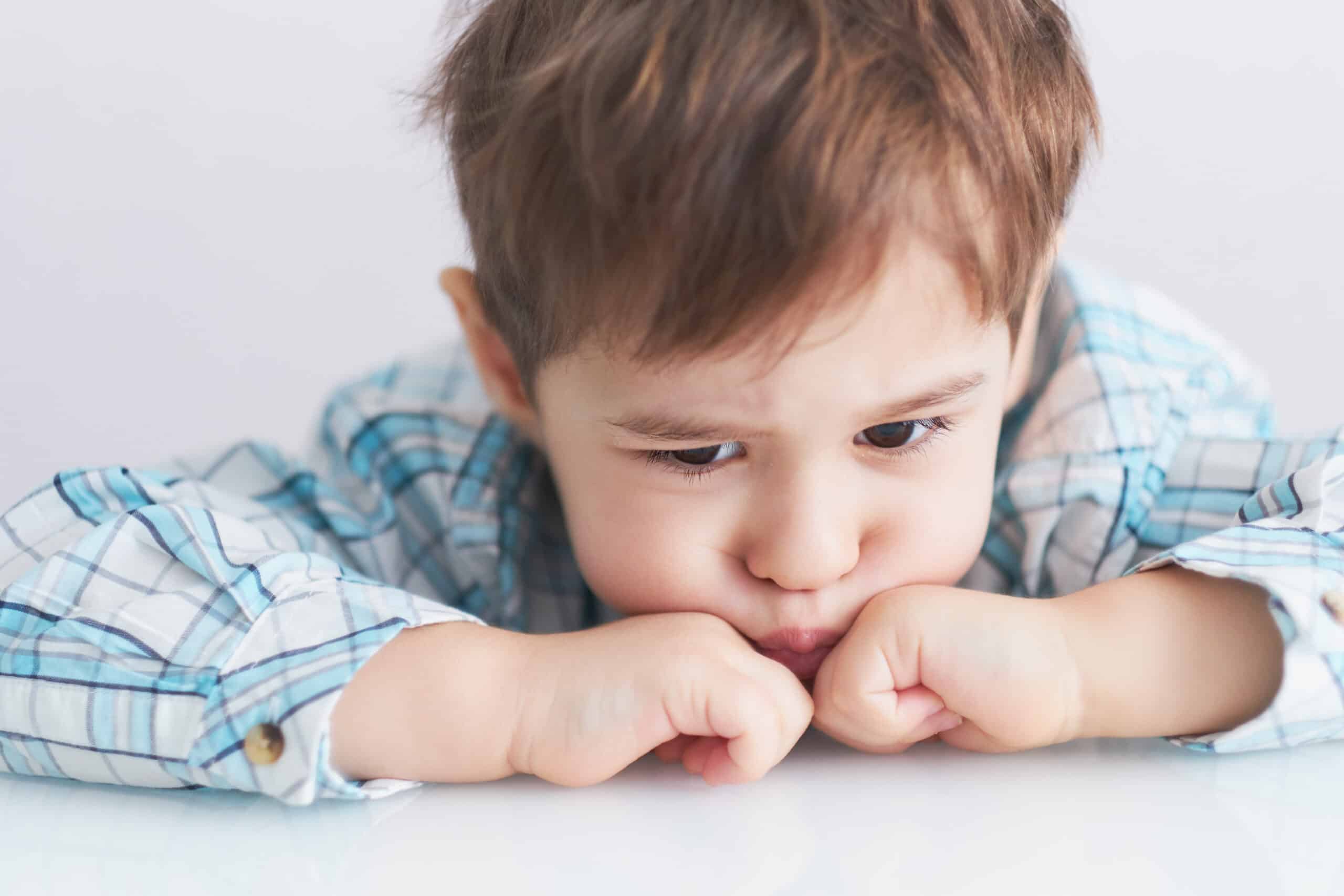
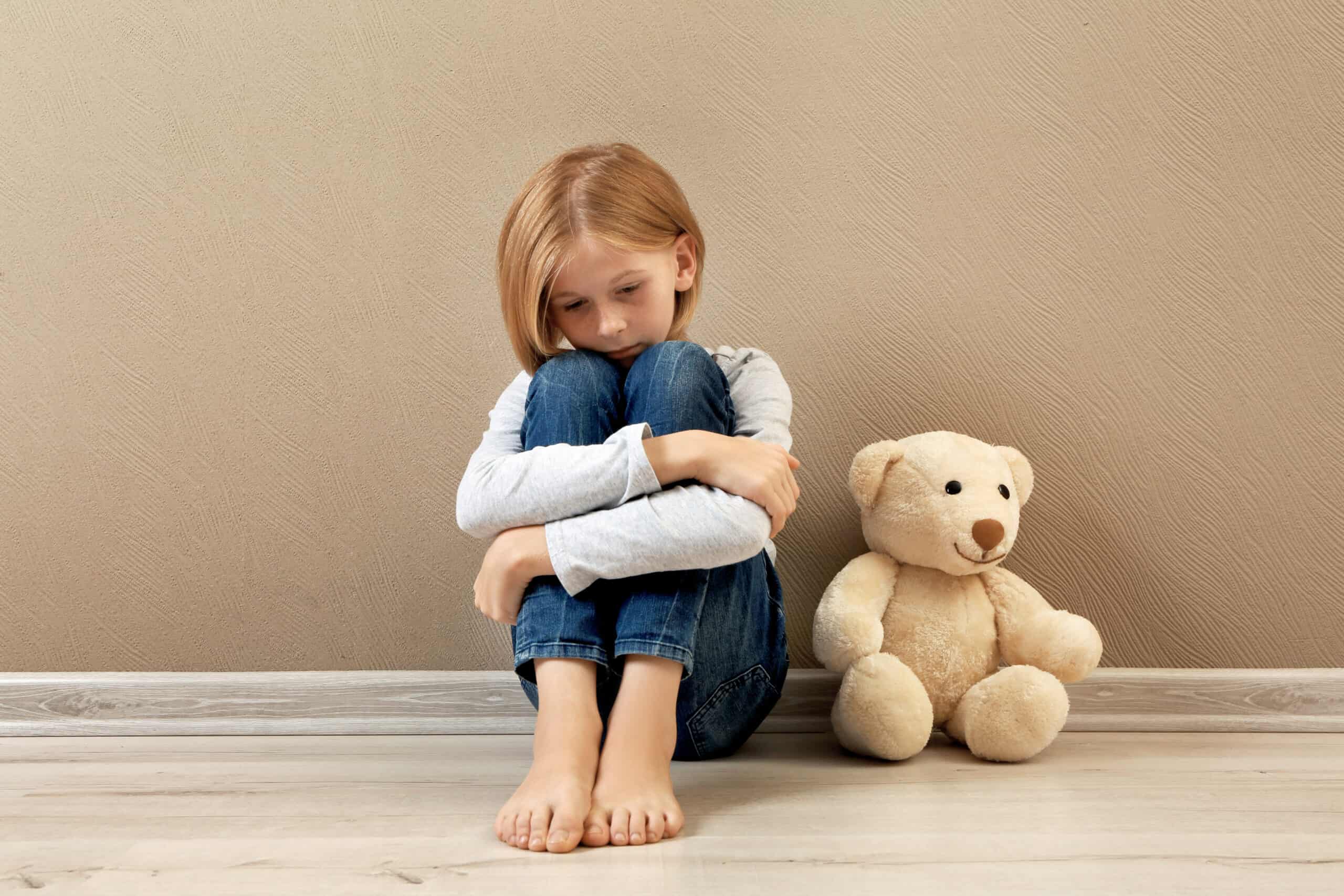
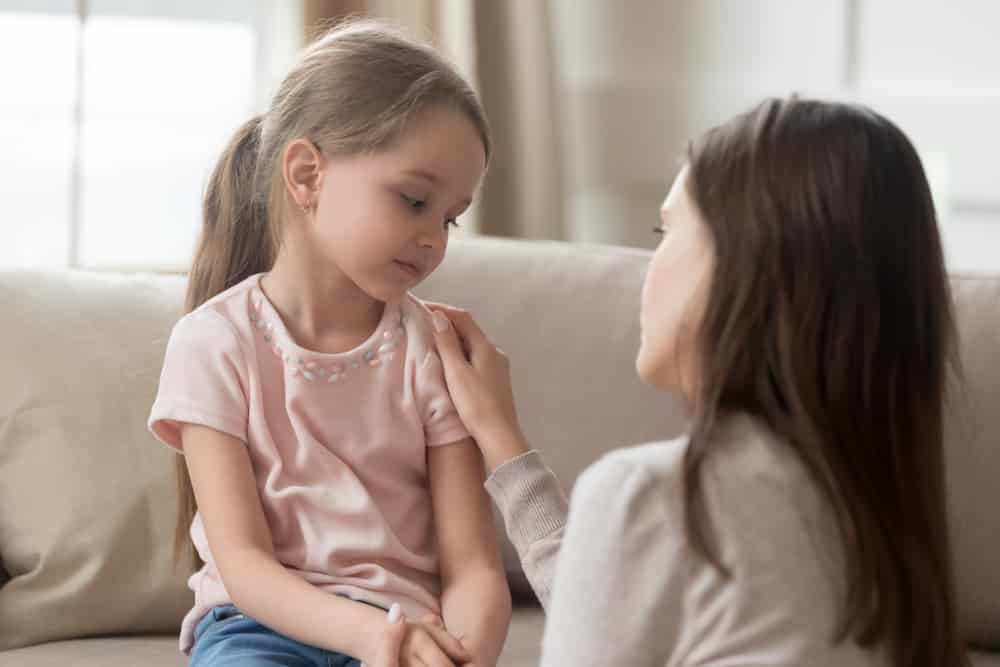
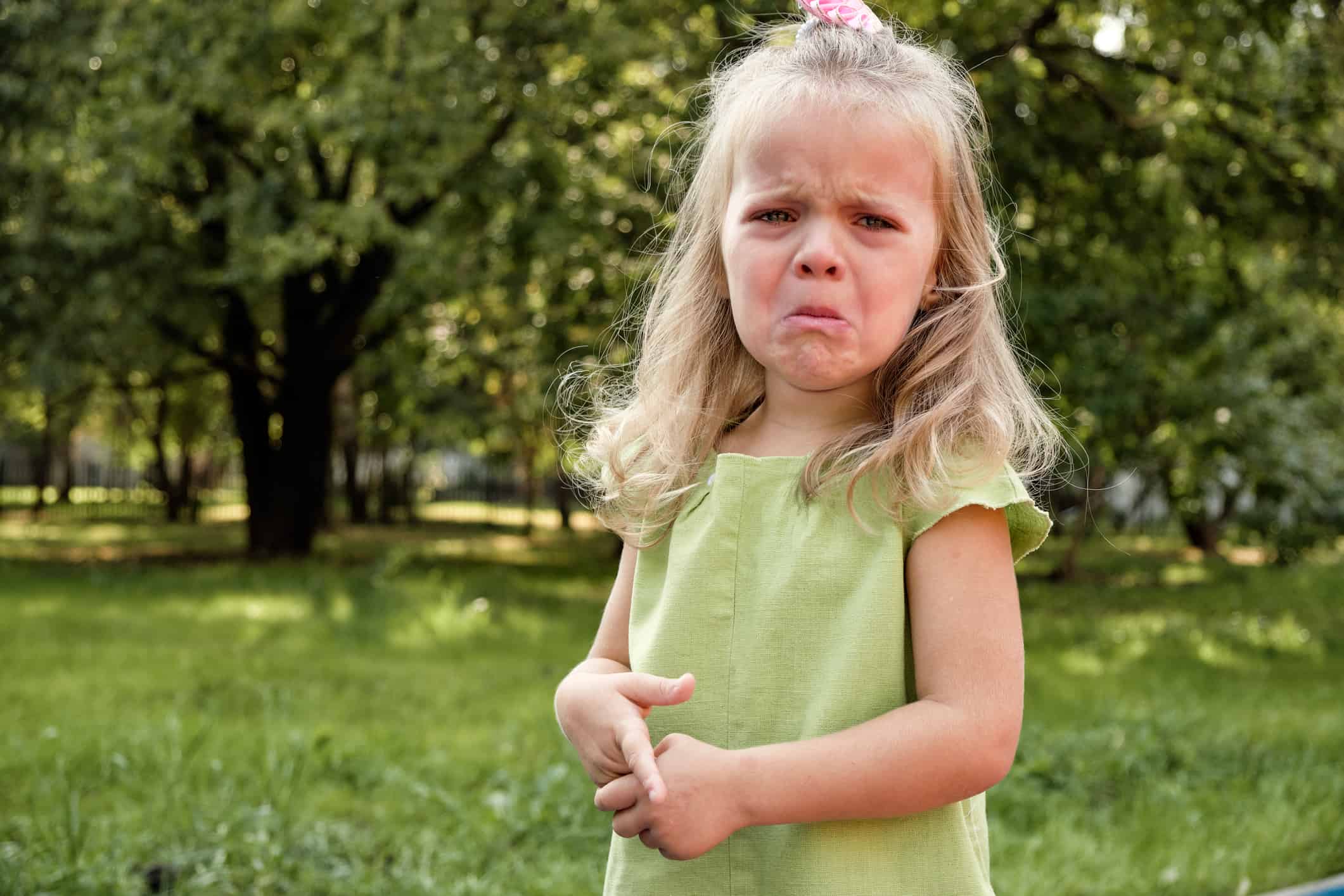
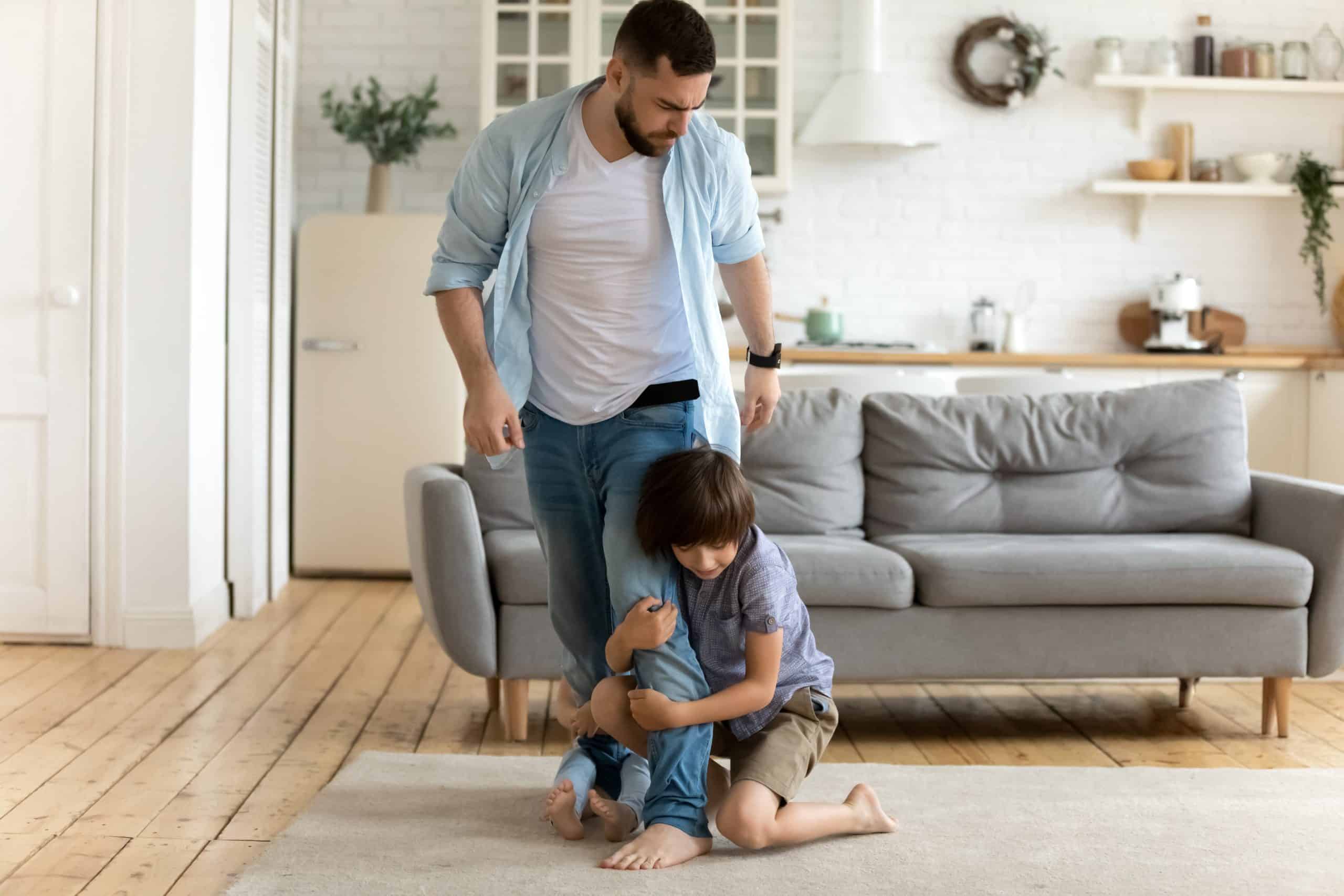
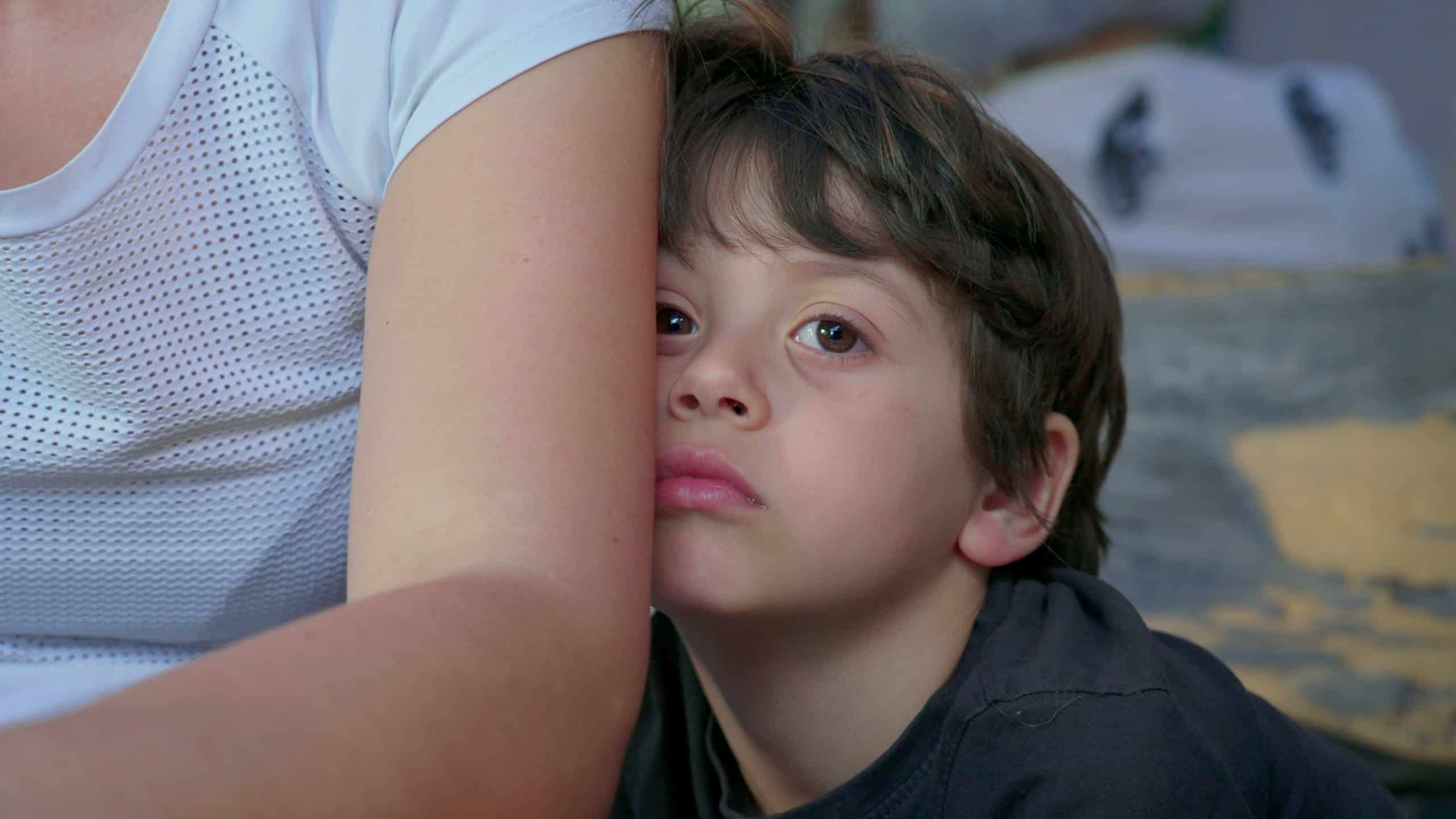

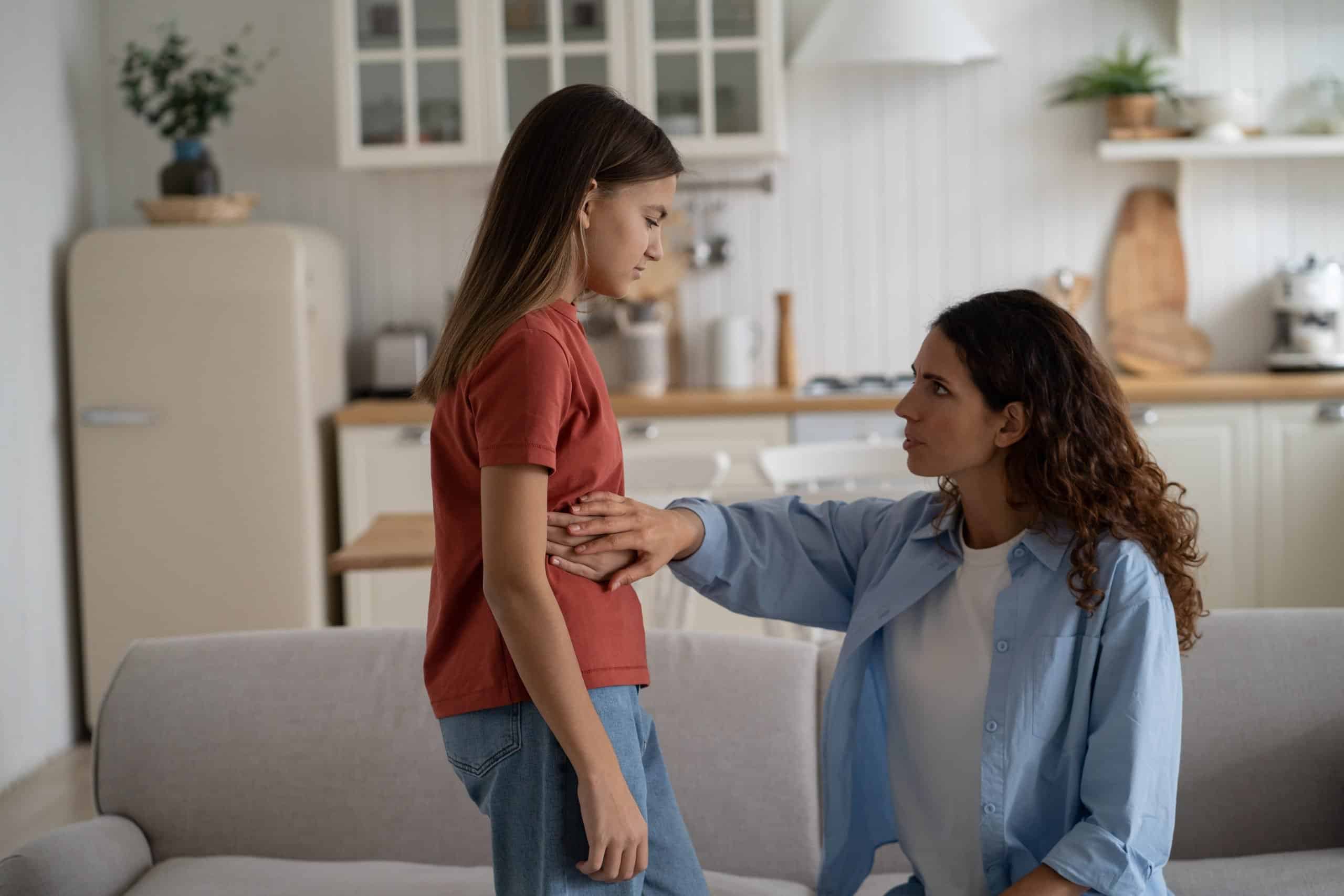
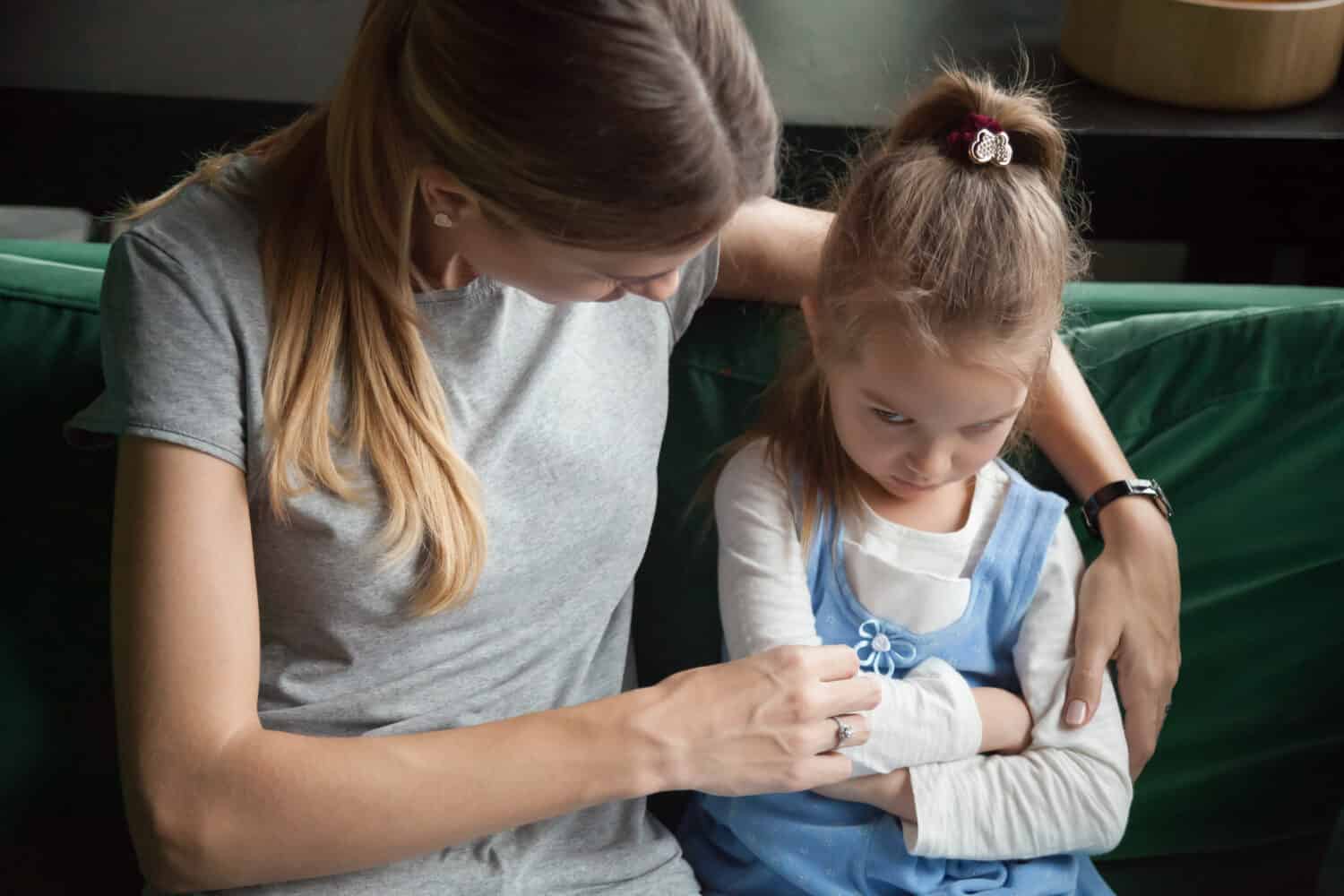

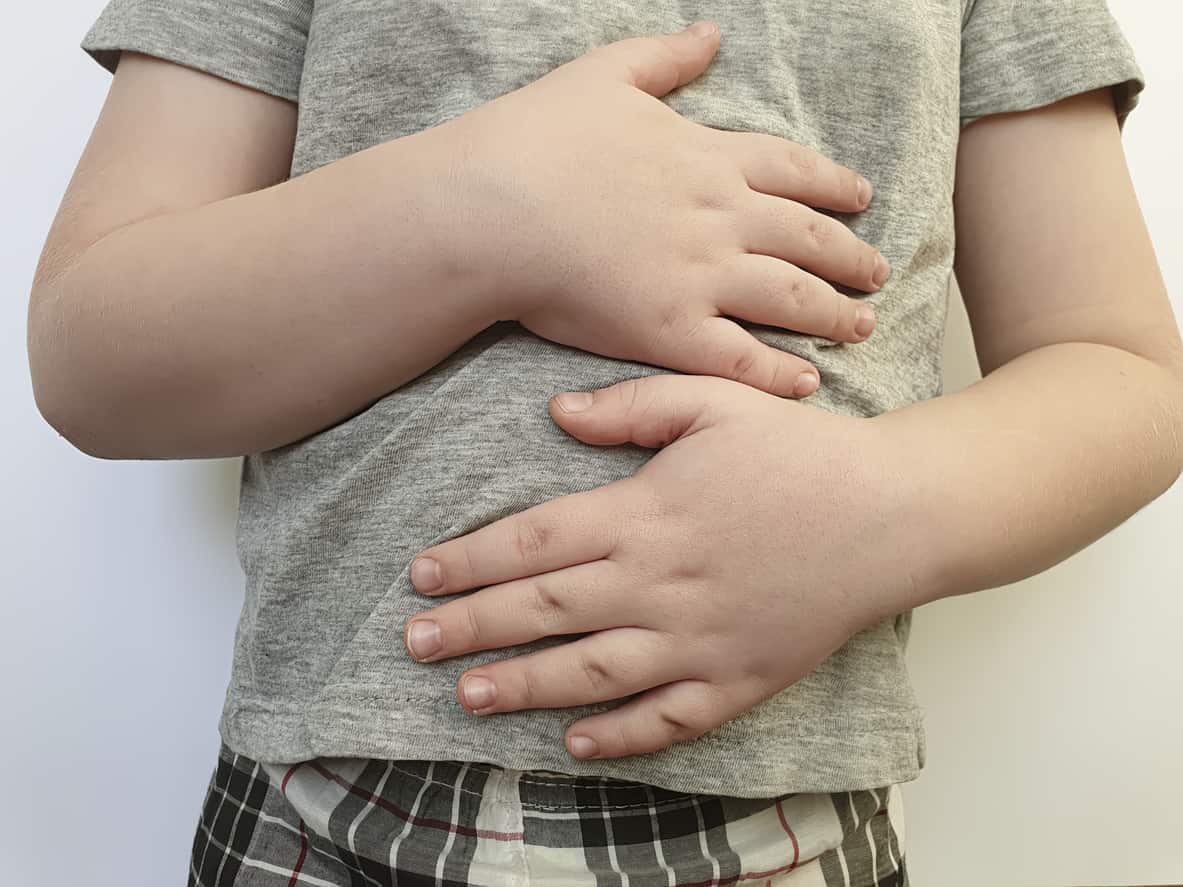
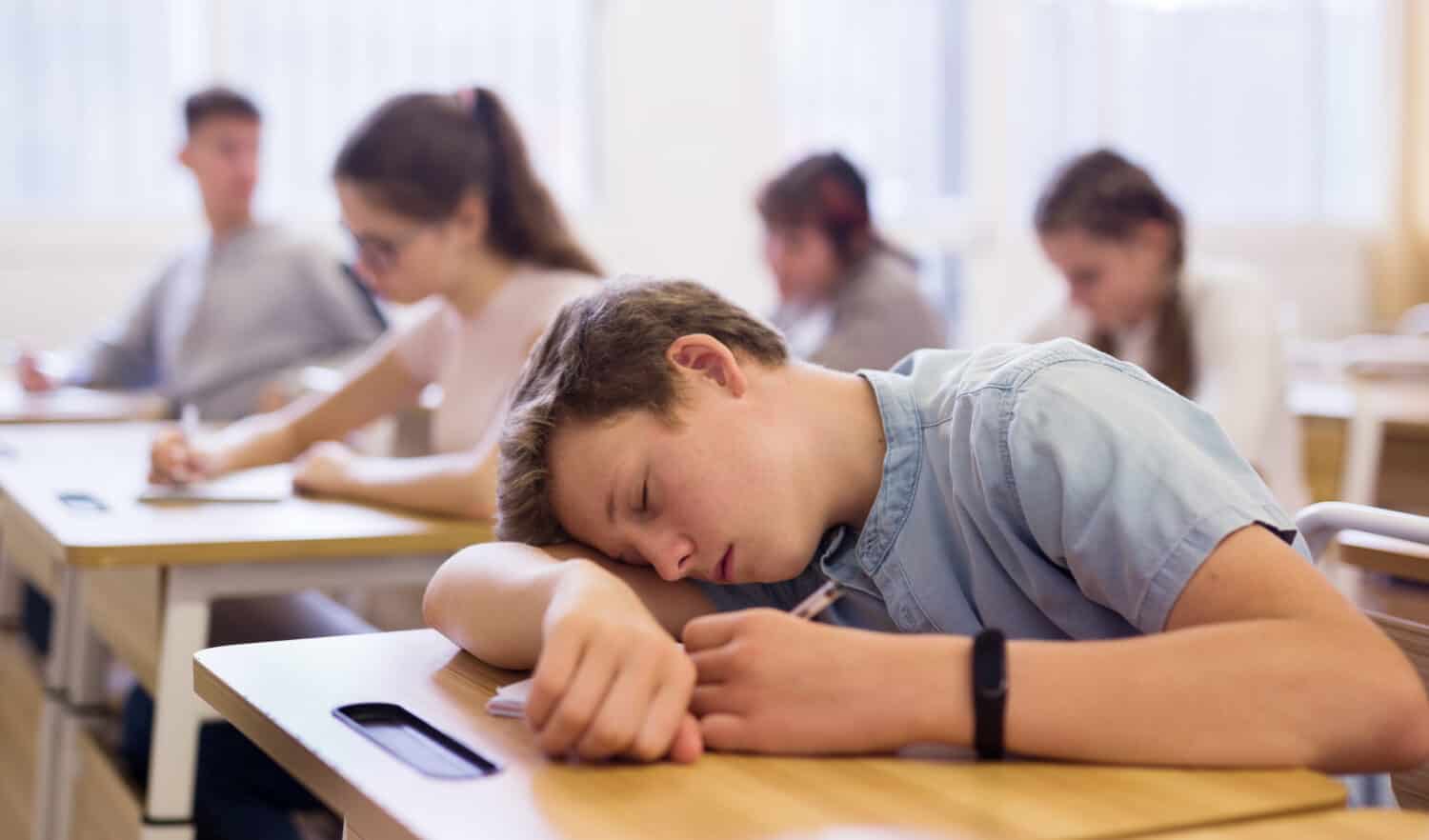
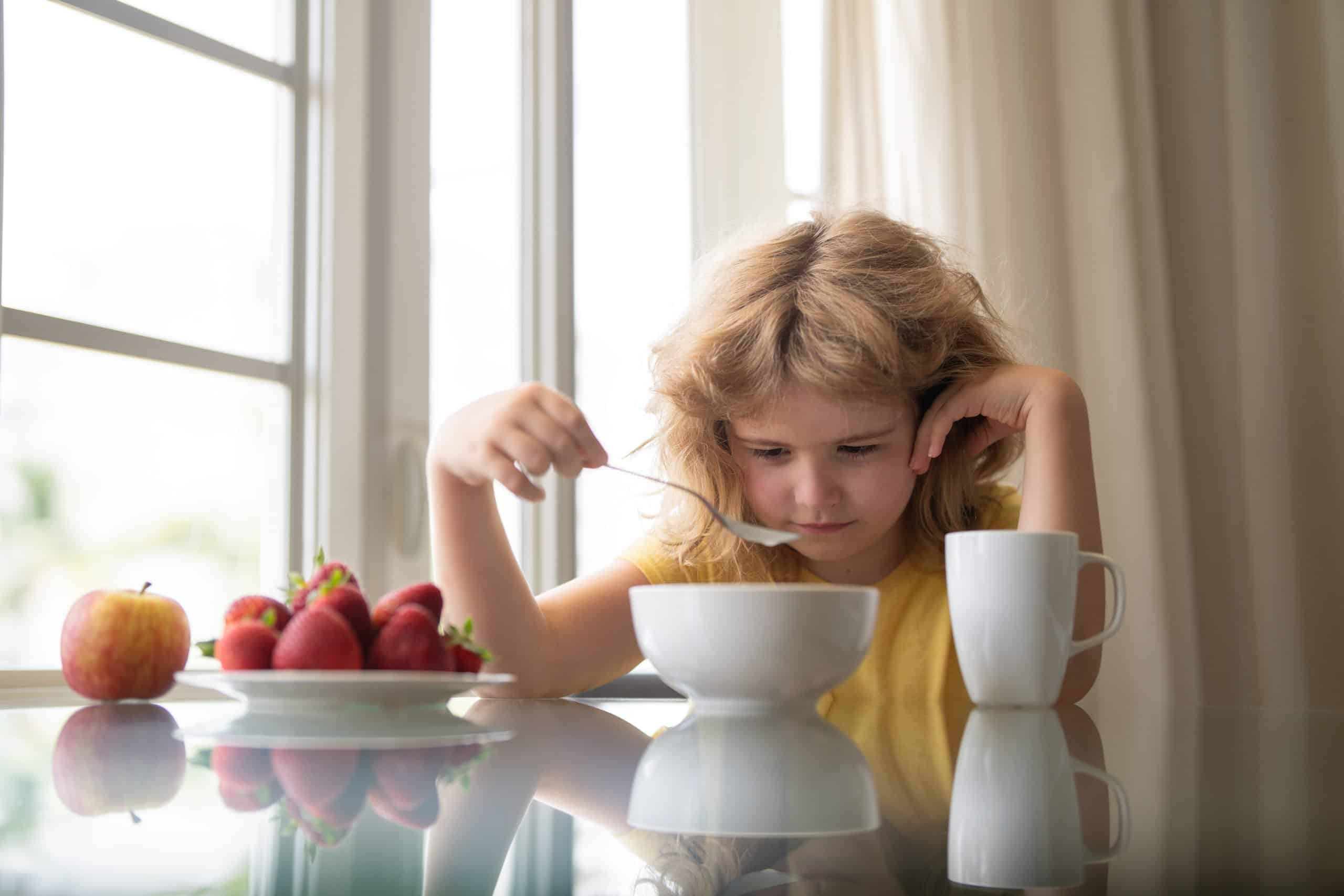
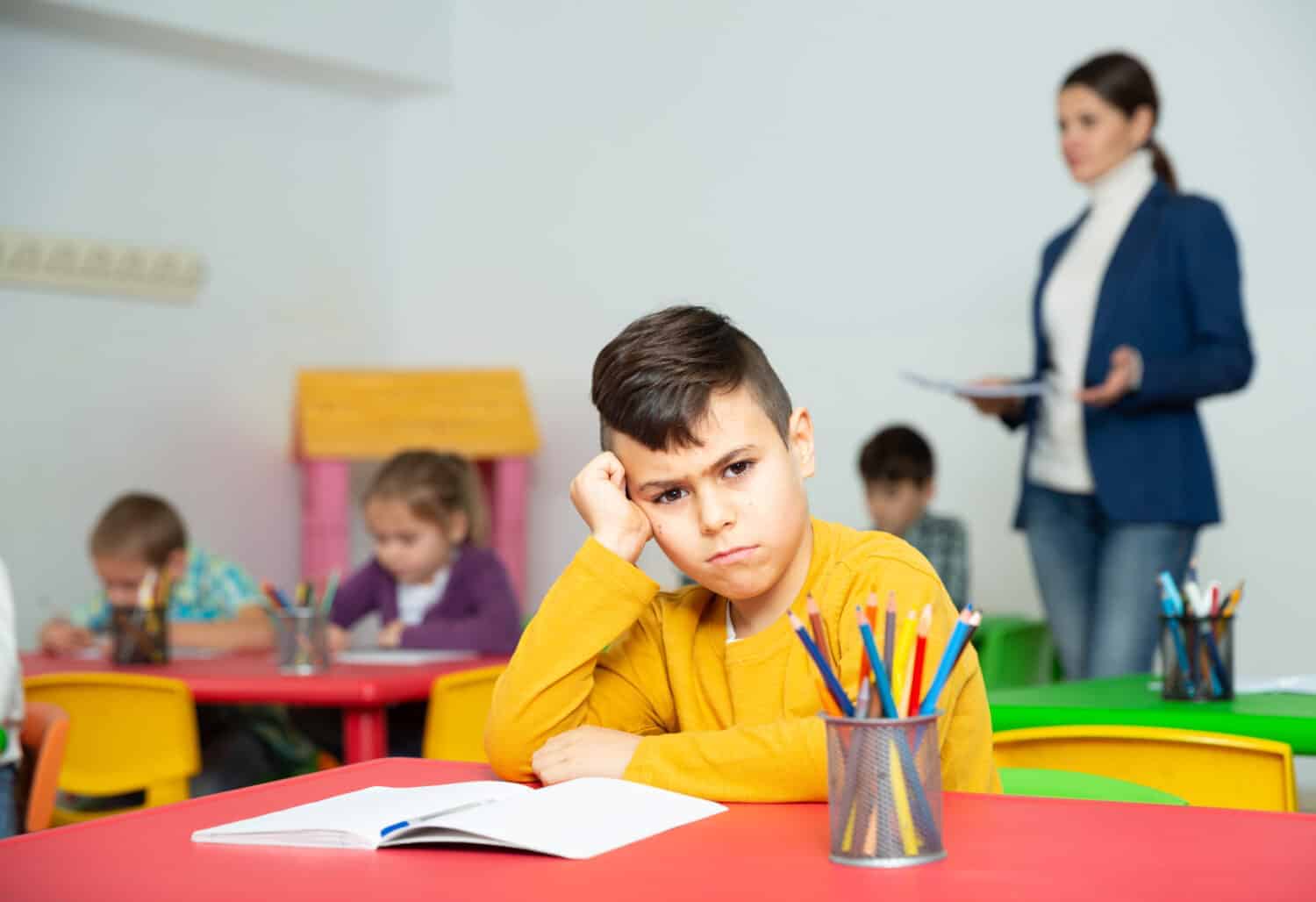
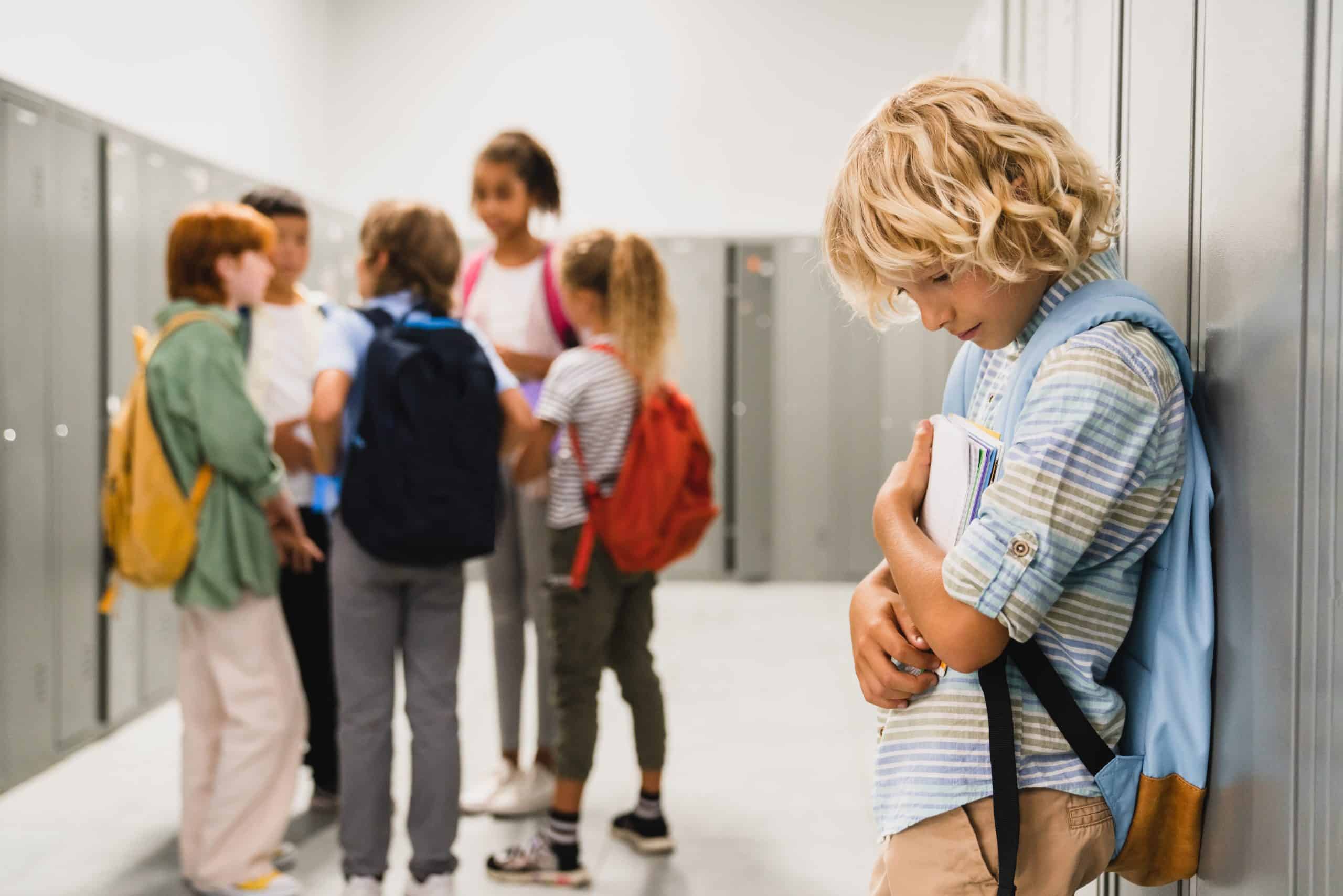

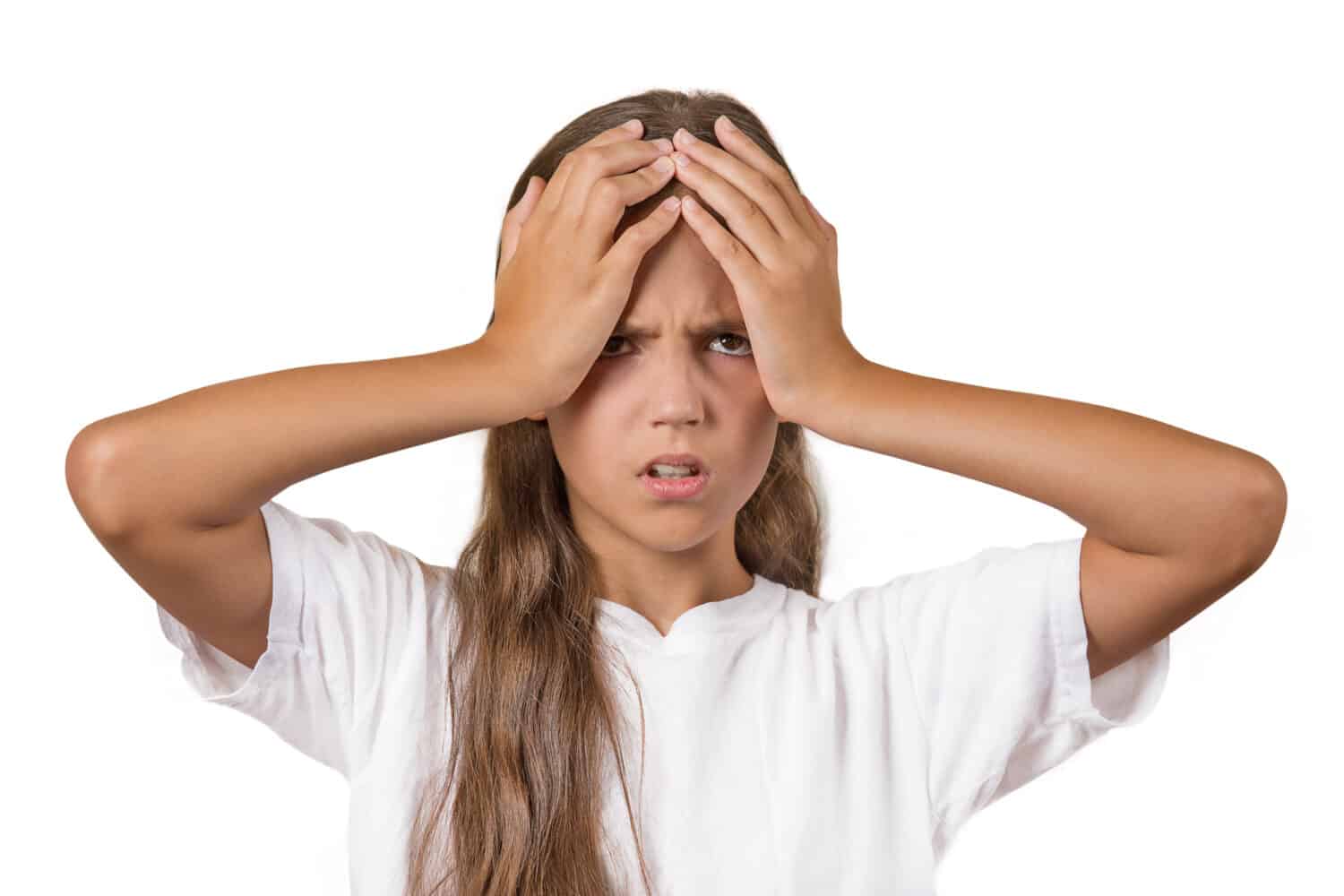
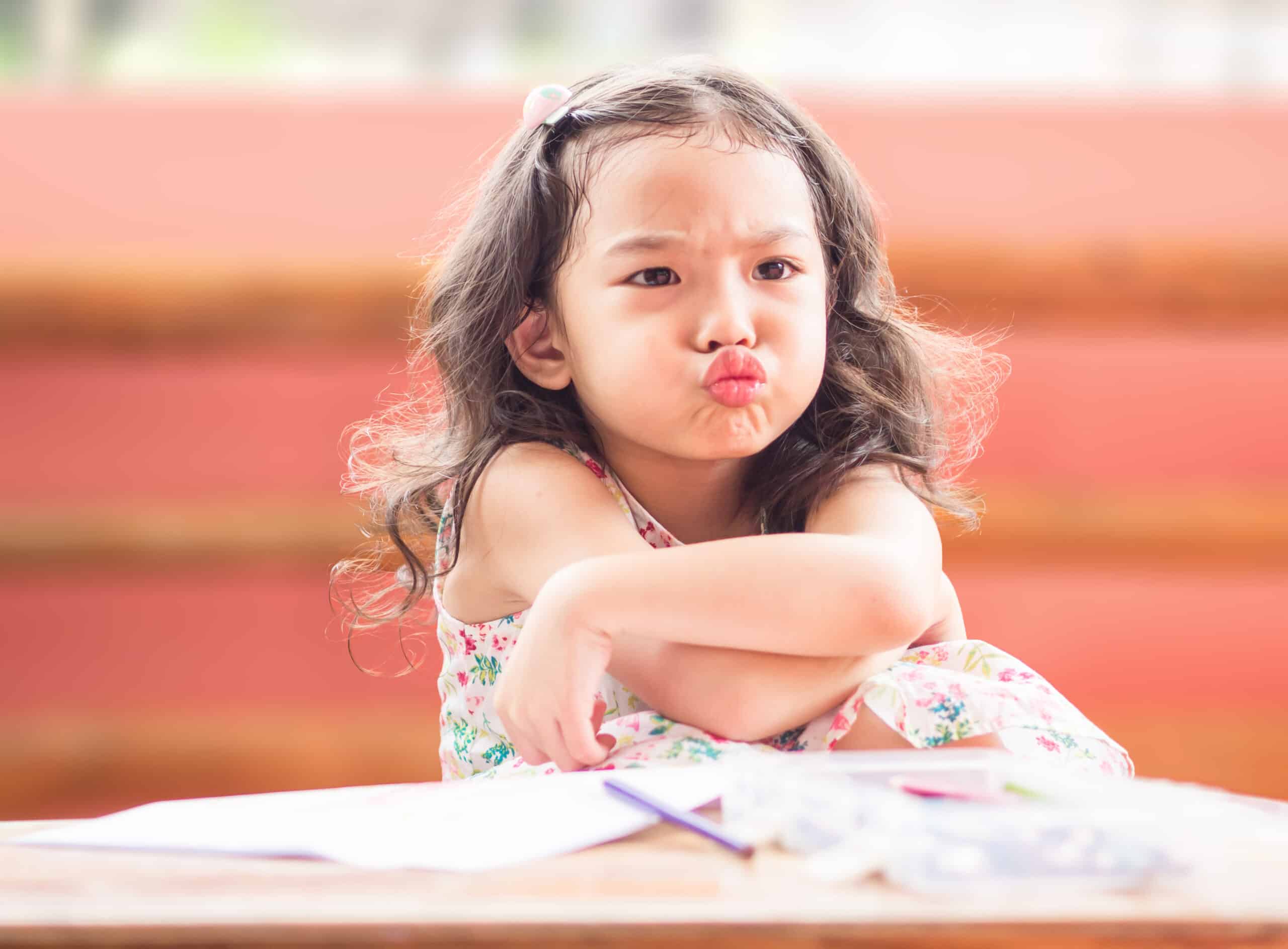
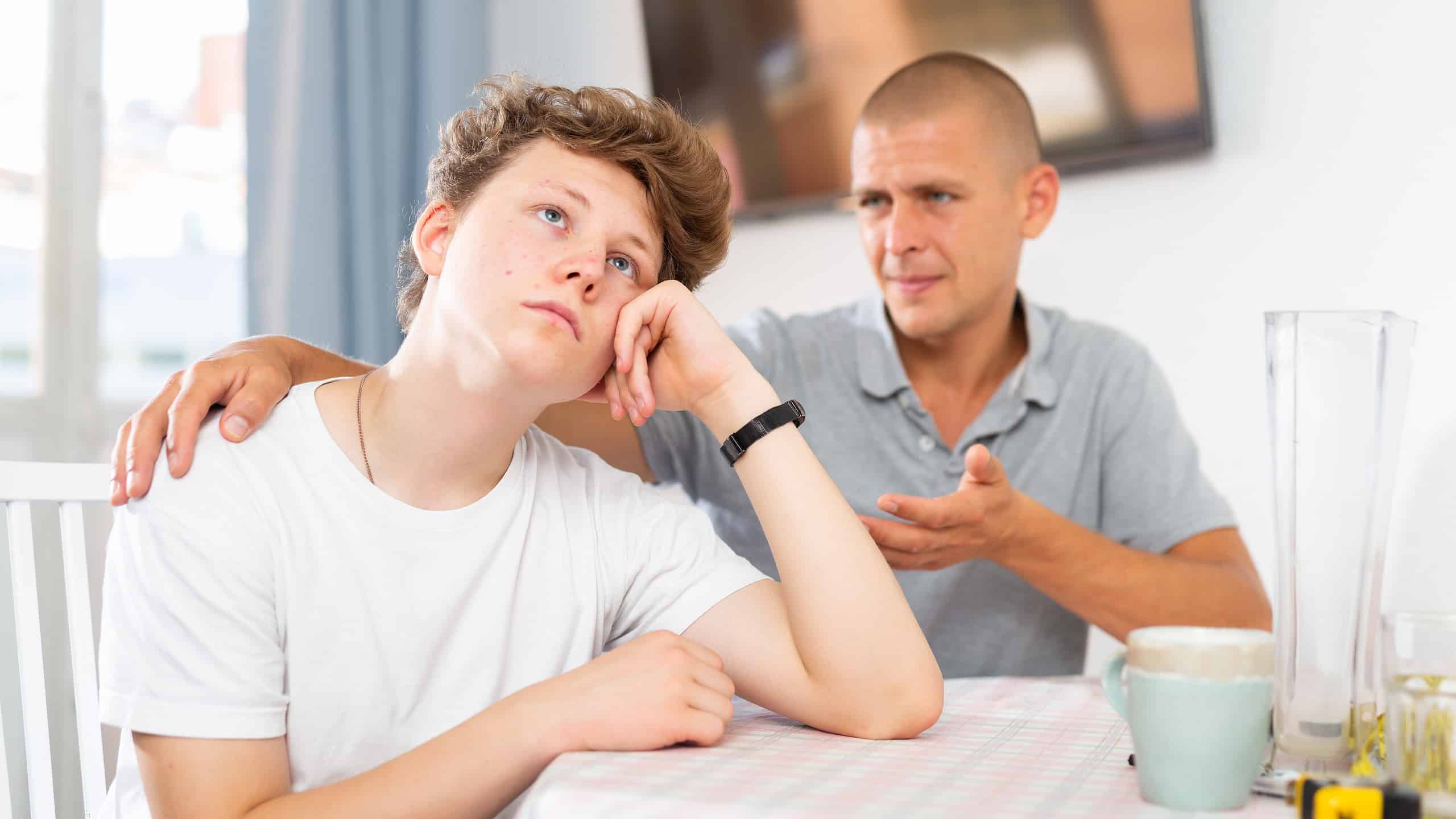
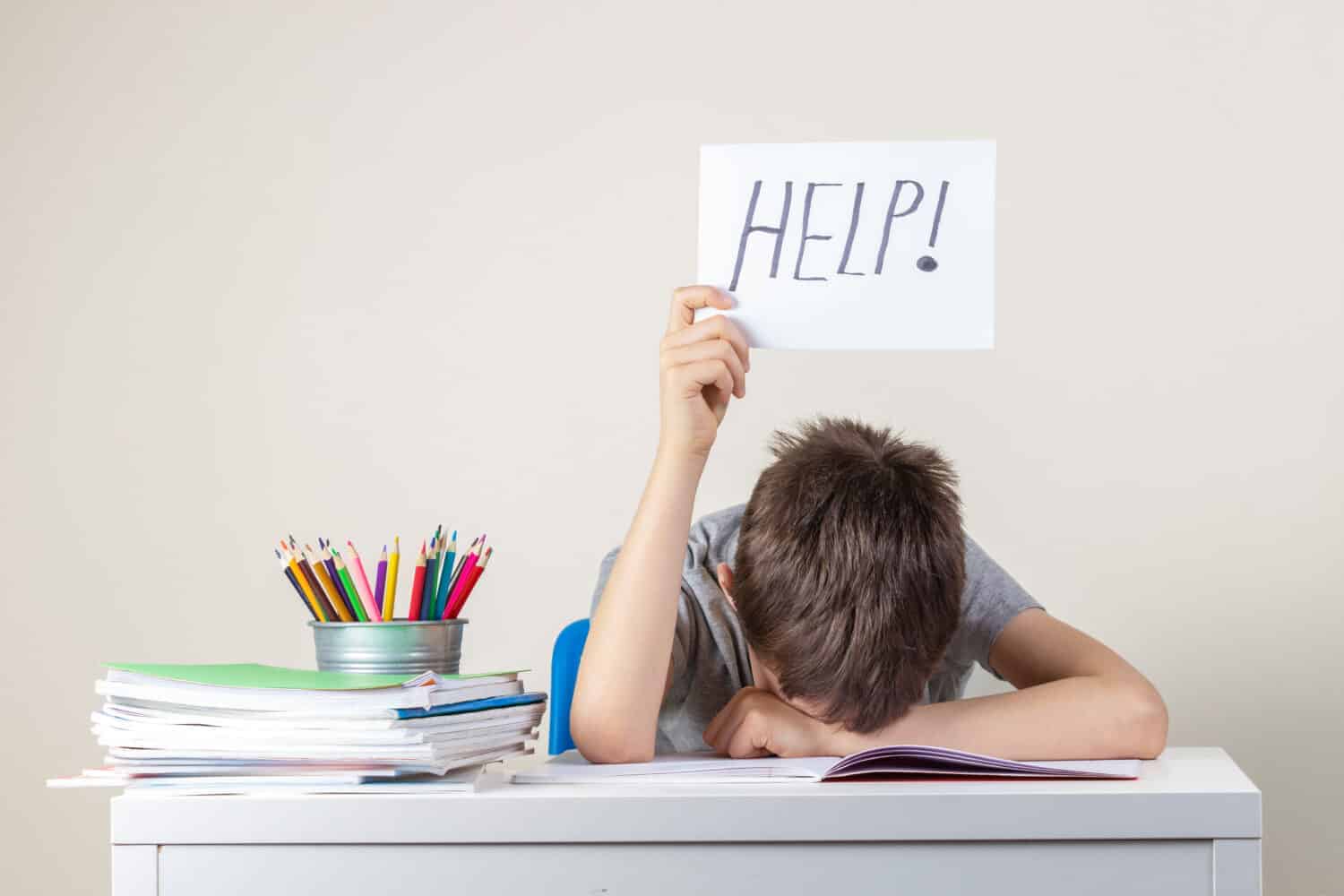
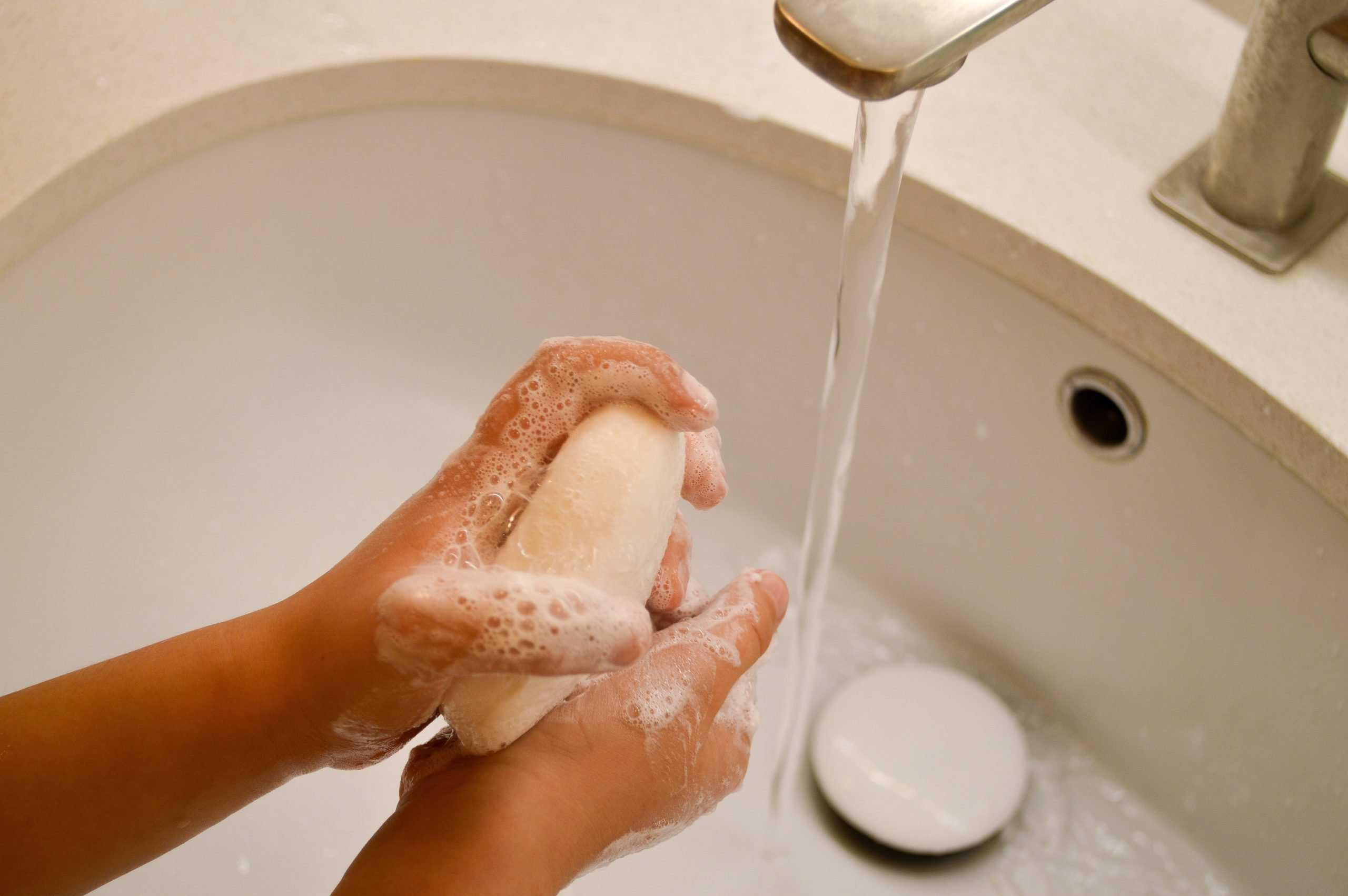


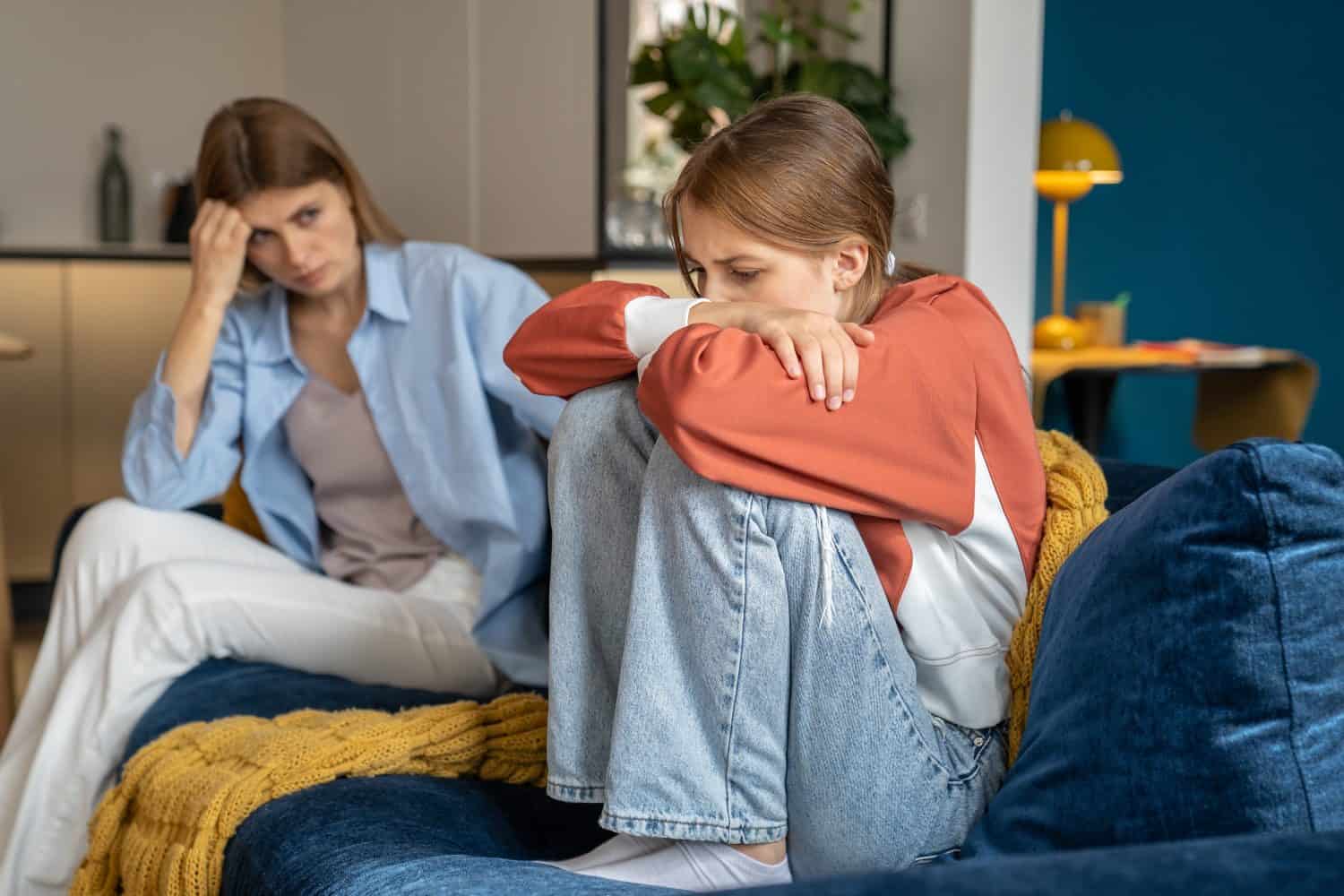

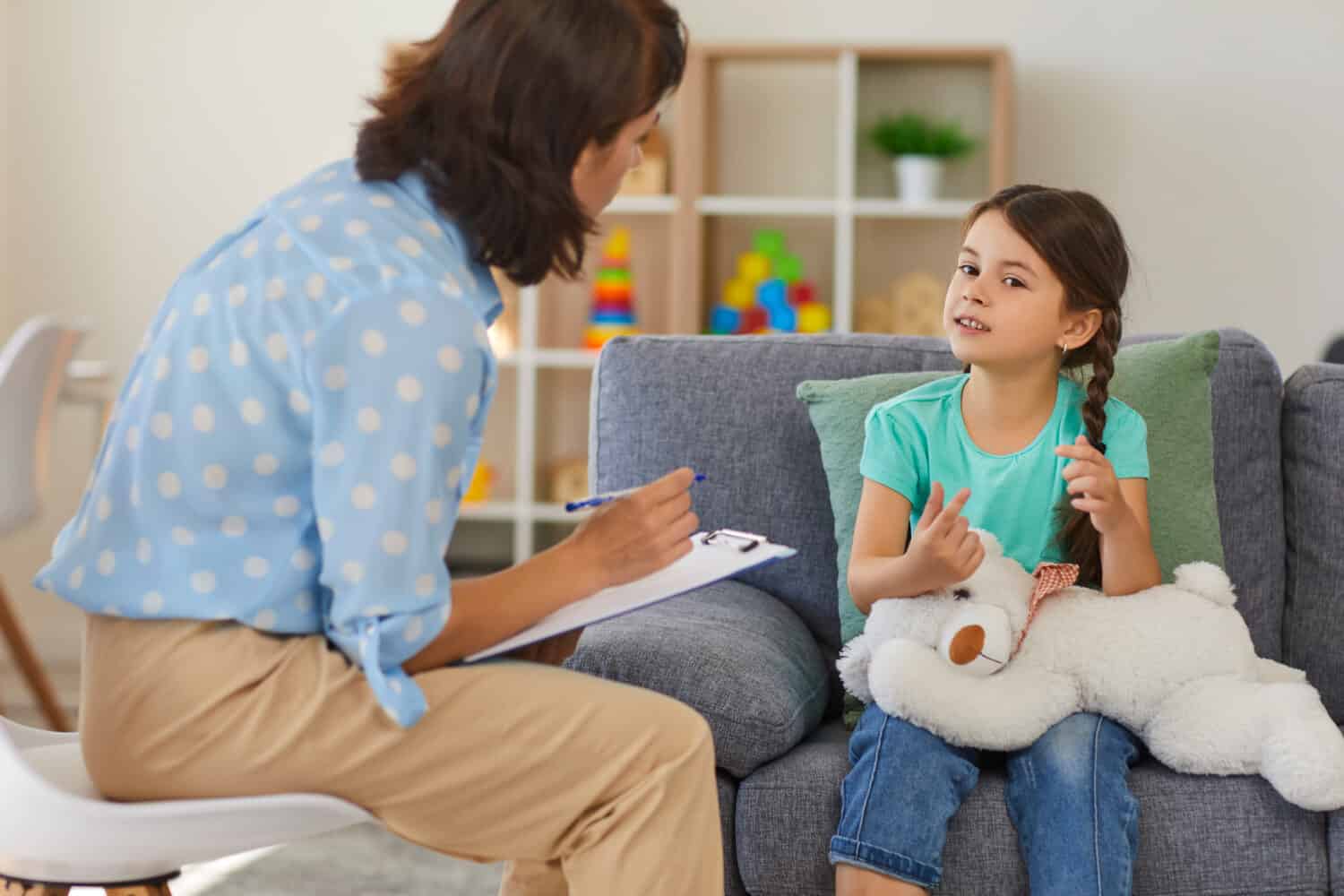
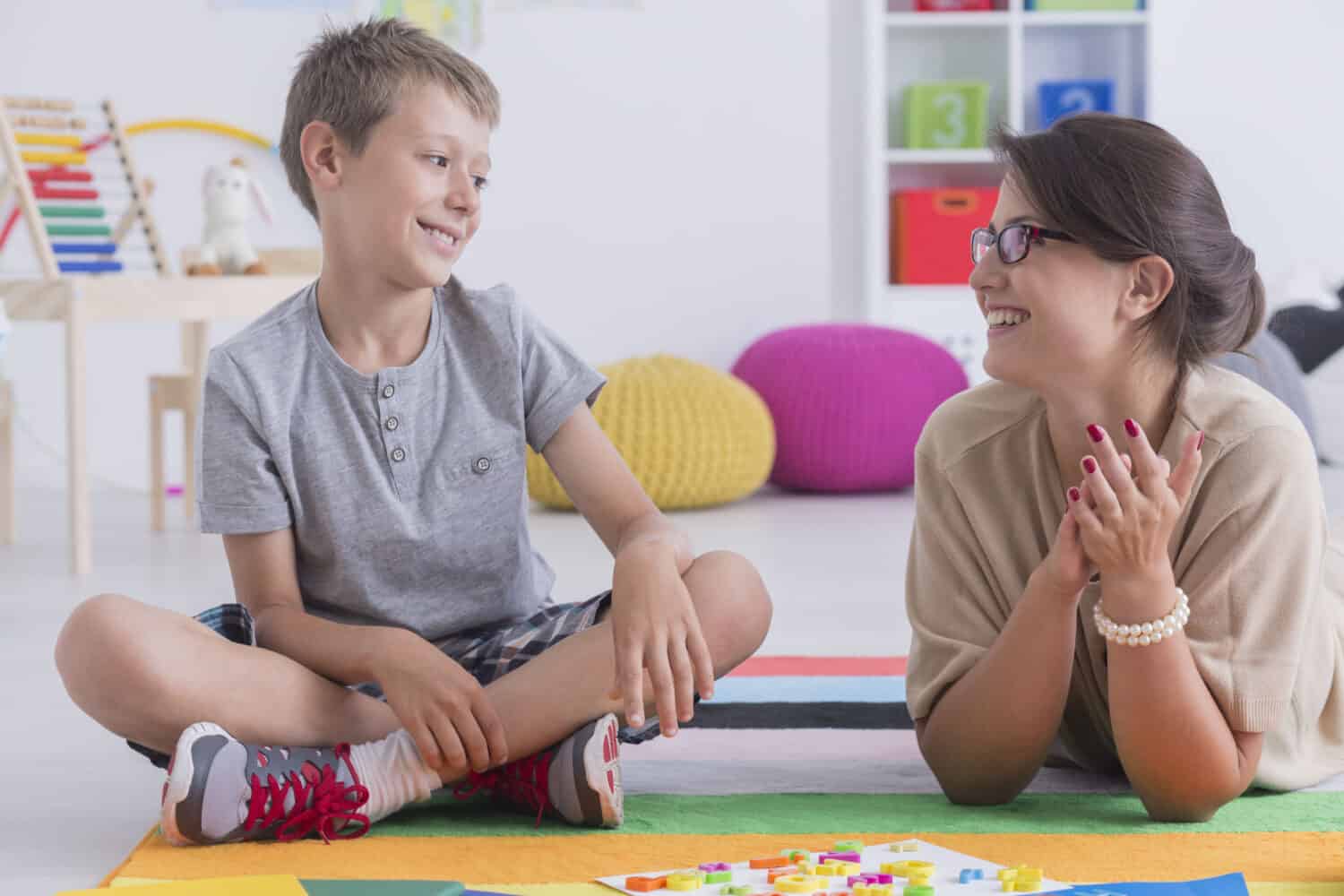
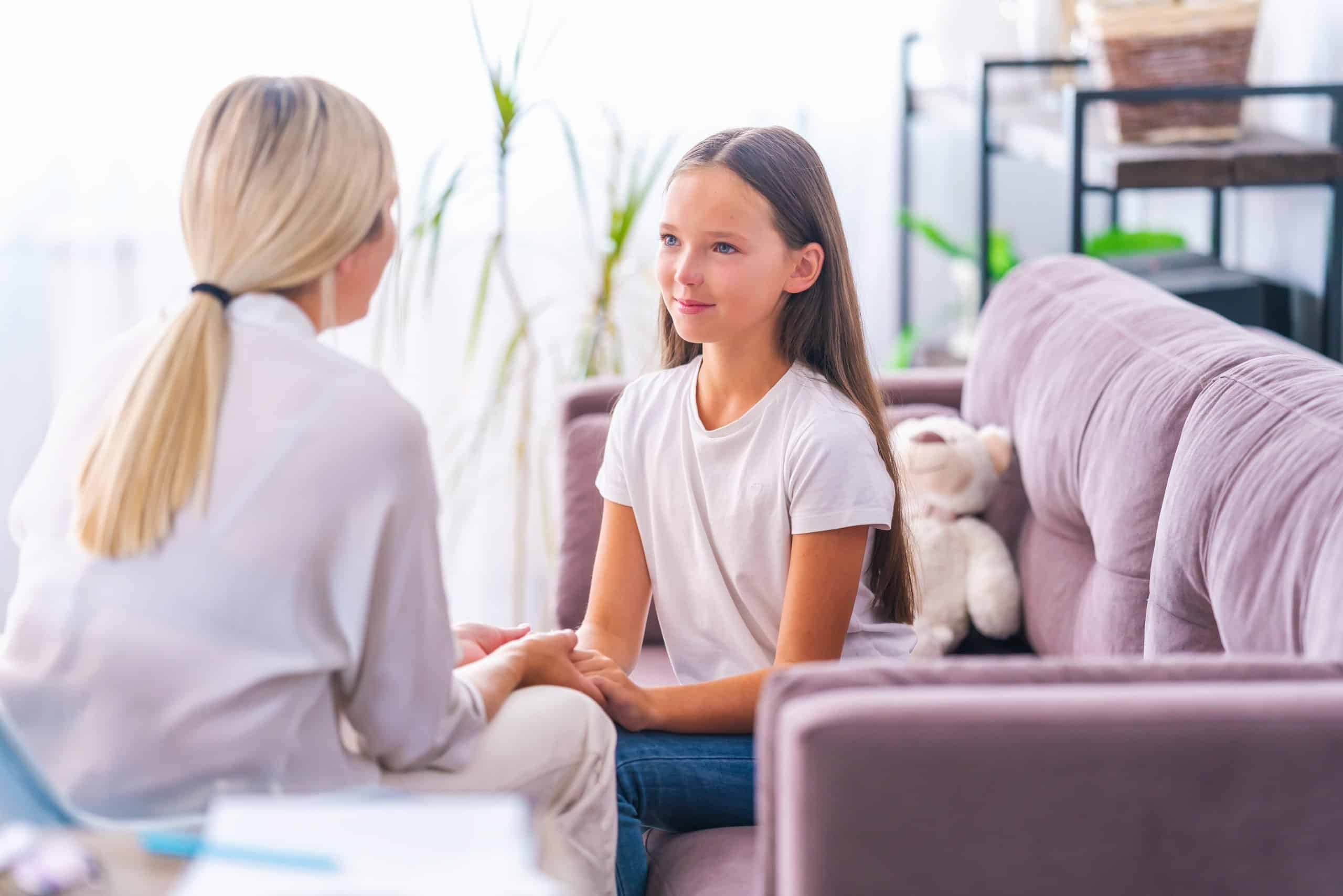

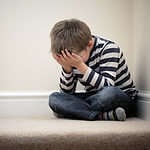
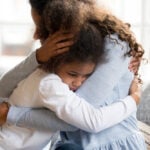
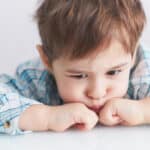


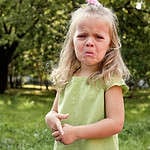
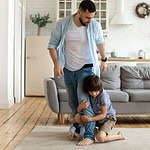
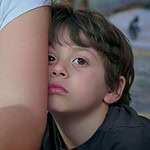


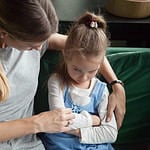




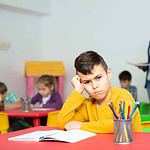





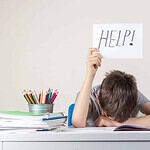








18 Signs Your Child Has Anxiety
Anxiety disorder is often something we think about affecting adults, with the stresses of life piling on. Yet, according to the Library of National Medicine, approximately 7.1 percent of children are diagnosed with anxiety (ages 3 to 17.) Most parents want nothing more than to help their children. Therefore, if you notice signs of worry in your child, it is a good idea to be on the lookout for any other symptoms that may indicate your child has anxiety.
To compile a list of signs your child has anxiety, Moms Who Think consulted multiple websites for information, including Healthline, WebMD, and Health. Additionally, first-hand experience with anxiety disorder in children was also used to give a list of symptoms to look out for. If your child has one or more of the symptoms on this list, it does not mean 100% that your child has anxiety. The only way to diagnose a child with anxiety is with a trained professional. However, if your child is displaying one or more of these symptoms, it is always a good idea to reach out to their pediatrician.
What is Anxiety?
Life comes with many stresses. It's normal to feel worried occasionally, whether as an adult or a child. However, anxiety goes much deeper than worrying every once in a while.
When under stress, our bodies produce the chemicals responsible for fight-or-flight: epinephrine (adrenaline.) If you have ever been in a situation where your adrenaline kicks in, you know that the feeling of being overwhelmed, and the fight or flight response will eventually ease out.
Now, picture having this feeling of adrenaline within your body all the time. When it comes to anxiety, sudden stresses cause our bodies to release this adrenaline, but the stress never levels out, so the adrenaline doesn't always dip back down. Those who are diagnosed with anxiety disorder have too much adrenaline in their systems.
Types of Anxiety
Anxiety is an umbrella term that covers a broader range of anxiety disorders. Some categories of anxiety include:
- Generalized anxiety: often involves excessive worry about scenarios in the future or "what could happen." This disorder affects around 6.8 million of the American population and often comes with physical symptoms.
- Panic Disorder: involves intense fear with physical symptoms such as chest pain and shortness of breath. Additionally, there's a sudden onset of severe fear or impending doom.
- Social Anxiety: overwhelming anxiety during social situations. Those with social anxiety may avoid situations that produce overwhelming feelings, including being in crowds, speaking in public, etc.
- Separation Anxiety: separation anxiety is when a person is afraid of being away from their primary caregiver. They may become clingy or throw tantrums. This type of anxiety is common in young toddlers but can also affect older children and even adults.
- Obsessive Compulsive Disorder: otherwise known as OCD, this disorder is marked by ritualistic behaviors. These thoughts and impulses lead to excessive anxiety. Excessive anxiety is often only relieved when performing a specific task or ritual. For example, they may deeply fear contracting a deadly disease from touching something. To relieve their anxiety, they wash their hands over and over throughout the day.
- Post-Traumatic Stress Disorder: PTSD occurs after a person has been exposed to a traumatic event. Symptoms include reliving the event over and over while they are trying to live their life. A person with PTSD may find it challenging to perform daily functions.
Children and Anxiety
While some may think of anxiety as a disorder that affects mainly adults, children also are affected by it. Anxiety in children and teens has been on the rise in recent years. According to the U.S. Department of Health and Human Services, a study showed an alarming increase in mental health diagnoses in children by 29% between 2016 and 2020.
Additionally, the effects of the Pandemic have contributed to the rise of anxiety in children and teens.
Causes of Anxiety
There are numerous causes when it comes to anxiety disorder. There is no one size fits all to be on the lookout for. Instead, there are several risk factors to be mindful of. These include:
- Genetics: family members who have anxiety or a mental health condition may put a child at more of a risk for developing this disorder.
- Social life: social anxiety can involve embarrassment, worry about others' opinions, and feelings of isolation.
- Stressful events: traumatic events can create fear and anxiety, especially when it comes to repeating a similar event that produced the stress (for example: getting in a car wreck, now having a fear of getting back into a car.)
- Childhood trauma: trauma changes the chemistry in a person's brain. Additionally, trauma can impact a person and create a risk of developing PTSD.
- Environment: if a child lives in a stressful environment, it is a risk factor for developing anxiety.
- Big transitions: big transitions such as starting a new school, moving to a new city, or a growing family may contribute to anxiety.
- Facing difficult situations: when a child has to face a difficult situation, such as a loved one facing a negative medical diagnosis or a death in the family, they may be at risk for developing anxiety.
- Brain chemistry: an imbalance in brain chemistry and body chemicals.
- Habits: not eating healthy or getting enough sleep.
- Drugs and alcohol: the abuse of these substances may trigger anxiety.
Signs Your Child Has Anxiety
Are you noticing signs that your child may have anxiety, or do you want to know the signs to be on the lookout for? Every child is different, and anxiety symptoms will present differently in every child. Not every child with anxiety will display all of these signs. On the other hand, not every child who deals with these symptoms will have anxiety. However, the signs on this list are common and ones to look for if you suspect your child may have anxiety.
Reluctance to Try New Things
Often, if a child is dealing with anxiety, they will be reluctant to try new things. This can be a trait they have always dealt with, or maybe it's a new development. Either way, your child may be fearful of what someone will say or that they will mess up and not get it right.
They Become Upset When You Leave Them
Children who are dealing with an anxiety disorder may be fearful of their primary caregiver leaving them. They may become unconsolable if you leave.
Some children may voice that they are fearful of something terrible happening to their caregiver and them never returning. Others may have a meltdown or tantrum, especially if they haven't learned how to express their thoughts.
Clinginess
Clinginess often goes along with being upset when a caregiver leaves. A child may cling to the caregiver, hoping this will keep them from leaving their presence.
When the caregiver is home, the child may hug or lay on them constantly or want to be in their presence. (The child may not want to go to bed, play with siblings, or be away from the primary caregiver even if they are in the same house.)
Needs Constant Reassurance
A child who has an anxiety disorder has all-consuming thoughts that may feel overwhelming and difficult to handle. These thoughts may tell them that terrible things may happen to their loved ones or them.
Therefore, they will need constant reassurance from the adults in their lives that everything is going to be okay. They may seek this reassurance several times a day to help them feel a little better. However, it may only work for a short time, and they will be back to seeking the same reassurance not long after.
Worries Over the Same Things
When a child has anxiety, they may worry excessively over the same things. Some of the worries may seem minimal to you or unrealistic. (Such as being deathly sick.)
However, it would help if you remember that your child is dealing with an overwhelming fear that they cannot control. They need compassion and understanding even if it's difficult for you to understand their worry.
Has a Difficult Time Being Comforted
Additionally, you may find it difficult to comfort a child with excessive worries. They may not believe you when you tell them everything will be okay. Their thoughts and worries are overpowering, making it difficult for them to shut off their minds, telling them they need to worry rather than listen to logic and reason.
Child Has Difficulty Calming Down/Explosive Meltdowns
Along with having a difficult time comforting them, your child may have a hard time self-regulating. Remember, when a child is dealing with anxiety disorder, they are getting a hit of adrenaline. Yet, this adrenaline continues to be released, especially if they cannot be comforted.
Therefore, they will have a more challenging time calming down, especially if the perceived threat or worry is all-consuming in their minds.
Additionally, your child may have explosive meltdowns seemingly coming out of nowhere. The overwhelming feeling they are having has to go somewhere. When it gets too difficult for them to keep inside or control, it's likely it will come out as an explosive meltdown.
There Are Outward Physical Symptoms
Anxiety in children can also show up as physical symptoms. While it's normal for children and adults to have these symptoms occasionally, it's not normal for them to occur daily. Therefore, if you notice your child is having one or more of these physical symptoms more often than not, it's a good idea to reach out to their doctor and talk to your child about what they are feeling:
- Headaches
- Stomach aches
- Fatigue
- Dry mouth
- Shakiness
- Dizziness
- Shortness of breath
- Sweatiness
- Muscle aches
- Palpitations
Has Sleep Disturbances
Anxiety can disrupt a person's sleep and throw off their circadian rhythms. Your child may be constantly tired, find it more challenging to awaken in the morning, or want to sleep all the time. Other times, your child may have difficulty falling asleep or staying asleep.
Additionally, anxiety can create more vivid dreams, nightmares, or night terrors. These nightmares and night terrors can create a whole new fear of falling asleep, worsening anxiety.
Their Appetite Changes
Appetite also may change when a person is dealing with anxiety. They may find themselves eating more food, possibly as a comfort. Other times, those who have anxiety may have a more difficult time eating. Their appetite may be gone entirely, or they may feel sick at the thought of eating.
Be on the lookout for excessive weight gain or loss if you notice your child's appetite has changed.
They Have a Hard Time Concentrating
Anxiety can be all-consuming. When a child is dealing with anxiety, they may find it difficult to concentrate on essential tasks. Additionally, they may start a task and not complete it, instead moving aimlessly from one task to another.
A child's focus on schoolwork or activities they used to enjoy may be affected as well.
Avoids Social Situations
Children who have anxiety, including social anxiety, may avoid social situations. Perhaps they don't want to go hang out with their friends anymore, join clubs or sports, or say no to any place with a crowd.
Avoiding social situations may feel like putting up a safety net when one is dealing with anxiety. The social situation may cause a heightened sense of worry, fear of being embarrassed, or having to control their anxiety. Additionally, children who have anxiety may be resistant to going to school, especially if their anxiety stems from there.
Has to go to the Bathroom Frequently
Have you ever anticipated a big event, like performing in a play or speaking in front of a crowd, and noticed you must visit the bathroom repeatedly before the event? Well, imagine having that feeling all the time. If your child has anxiety, you may notice that they are having to urinate more frequently than they used to.
Child Has a Negative Mindset
A negative mindset is another symptom of anxiety. Being all consumed with thoughts of worry and fear may mean your child gives in to negative thoughts more often.
They can see what harmful things might happen, heightening their excessive worry. For example, your child may fear you leaving the house because they are worried you will get in a car wreck and never come home. The constant worry may create a negative outlook on life and make it difficult for your child to see the positives.
They Are Easily Irritable or Agitated
Children who have anxiety may feel like they are living in a constant state of fight-or-flight. This means that their nervous systems are in overdrive, with constant adrenaline rushing through their bodies. Therefore, they may become more irritable or agitated towards you, their family and siblings, or friends. Your child may appear snippier in daily conversations, or they may snap repeatedly at seemingly minor occurrences or irritations.
Withdrawing From Friends and Family
A child with anxiety may feel more comfortable controlling their anxiety when they are not around a lot of people. They may also retreat within themselves and prefer to be alone. If you notice your child withdrawing from friends or family, reaching out to their doctor is a good idea.
Child Has Obsessive Thoughts
Excessive worry and obsessive thoughts may go hand in hand. A child with obsessive thoughts and anxiety has a harder time removing those thoughts, even when logic tells them it will not happen. These obsessive thoughts can be daily or pop up in a particular situation.
For example, a child who has anxiety and fear of something terrible happening may begin having obsessive thoughts when it's thunderstorming. However, these thoughts and anxiety go much deeper than the usual fear of a storm. A child with anxiety may have obsessive thoughts that a tornado will sweep their house away, and no matter how many times you reassure them, they are unable to think about anything else or be comforted. They may become paralyzed with fear every time it rains. Of course, this is just one example of many where a child with anxiety may become obsessive with their thought patterns.
They May Exhibit Obsessive Behaviors
Along with obsessive thoughts come obsessive behaviors. These obsessive behaviors may be a symptom of OCD; however, they can also occur with anxiety in general.
A child with anxiety may begin performing obsessive behaviors as a way to control their thoughts. The most well-known example of this is a fear of coming down with a deadly illness. A child who has anxiety of becoming sick may wash their hands over and over until their hands are bleeding and raw. Additionally, they may avoid touching another person, use hand sanitizer constantly, wear gloves, or even avoid social situations.
What to do if You Think Your Child Has Anxiety
If you suspect your child may have anxiety, there are a few steps you can take as their parent to help give them relief.
Help Child Manage Their Anxiety
As a parent, it's normal to want to remove everything that makes your child anxious. However, it's better to help your child learn to manage their stressors.
You can begin teaching your child how to manage their anxiety with these ideas:
- Do not avoid situations just because they may be a trigger. Of course, there are certain situations that it's viable to remove your child from if it causes anxiety.
- Take some time and learn which situations are okay to remove your child from (those that cause danger, etc.) and which ones are part of normal life that you can help your child cope with.
- Be positive as your child works on their anxiety.
- Talk to your child about their anxiety.
- Explain to them what anxiety is and the physical effects it has on our bodies.
- Talk to them about solutions for their anxiety, and brainstorm ideas together.
- Teach your child coping mechanisms that may help relieve some of the effects of anxiety.
Do Not Dismiss Their Anxiety
When a child is dealing with anxiety, their fear and worry is significant to them. Although their worries may not seem like a big deal to you, if you dismiss their anxiety, doing so may make your child feel like they are alone in their struggles.
Having support and someone they can talk to is an essential part of coping with anxiety.
Do Some More Research
Research can be a parent's best guide to understanding anxiety in children. Look up legitimate health sites that can guide you in understanding the disorder. Reach out to a parent helpline to talk to an expert or read health studies on anxiety. All of these steps and more can help you become more knowledgeable when dealing with anxiety in children.
Talk to Your Child's Doctor
If your child's anxiety has reached the point where it is affecting their day-to-day life, it's essential to talk to your child's doctor. They will be able to talk to your child one-on-one about their thoughts and anxiety.
Additionally, your child's doctor may be able to give you advice on methods to try when it comes to giving your child relief from this disorder. Furthermore, they may recommend support groups, talking to a therapist, or trying Cognitive Behavior Therapy.
Try Cognitive Behavior Therapy
Your doctor may recommend that your child try Cognitive Behavior Therapy. CBT can help a person learn to manage their anxiety and change their mindset. It teaches a person how to be mindful of their anxious thought patterns and gives them actionable steps to change them.
While there are options for trying CBT with a trained therapist, there are also CBT books that your pediatrician may recommend trying first. One book that has been helpful for some children dealing with anxiety is called "Retrain Your Brain," written by Seth J. Gillihan.
Get Mental Health Support for Your Child
Getting mental health support for your child who needs it is very important. Websites such as The Center Foundation and Kids Mental Health Foundation both offer resources and support for parents and children who are dealing with mental health issues.
Additionally, your town may have a center specifically for helping those with their mental health. The center may have programs for children, therapists to talk to, and resources for parents. Talk to your child's doctor or the hospital if you are seeking a facility in your area for help. (Read the best extra-curricular activities for anxious children.)